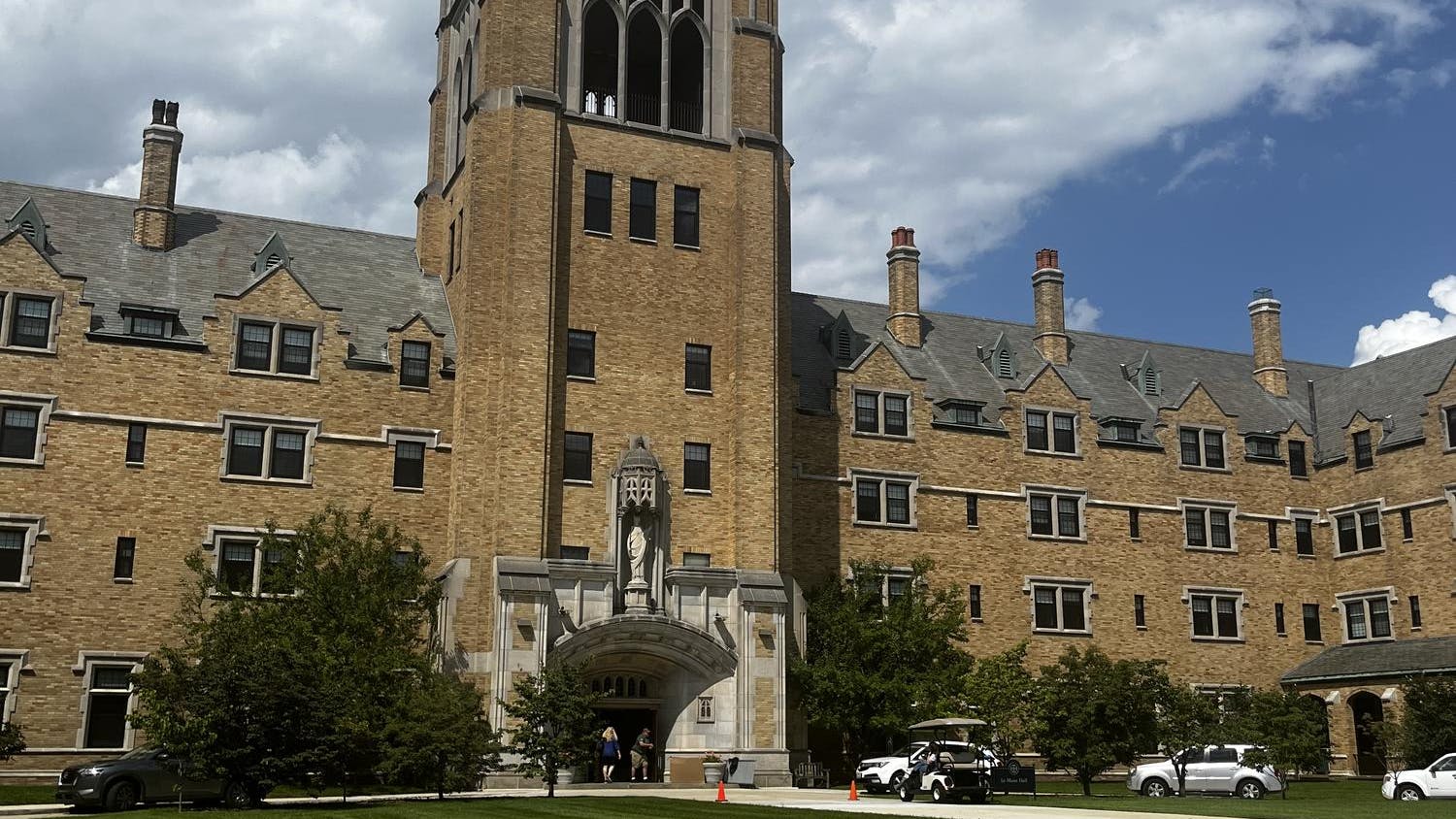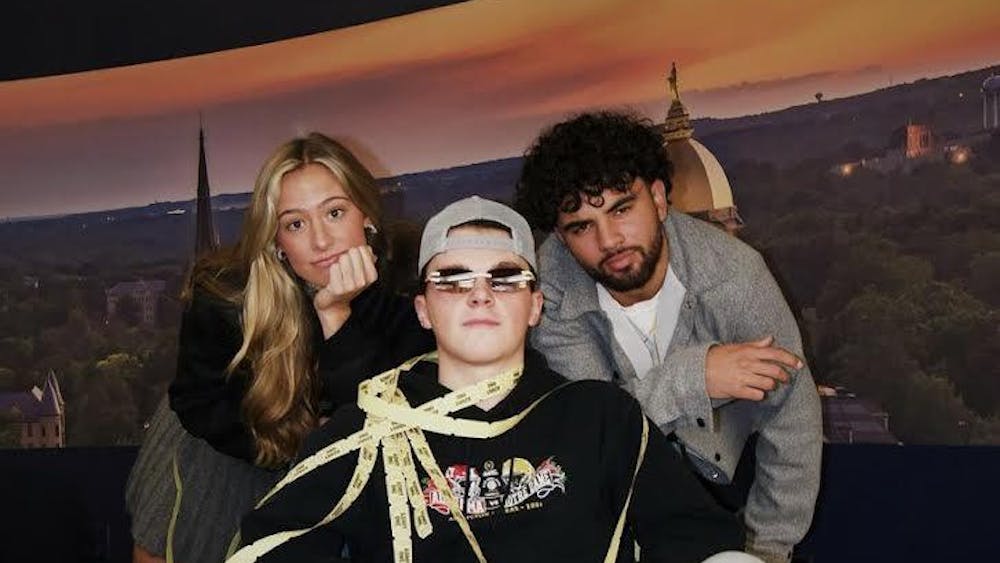Though every Notre Dame student may be Irish in spirit, five graduate students in Notre Dame's ESTEEM program are also Irish by birth.
Ireland natives Tom Collins, ConorO'Donoghue, Shane McQuillian, Shane McCarthy and Anthony O'Sullivan are students pursuing graduate degrees in Notre Dame's Engineering, Science, Technology and Entrepreneurship Excellence masters program (ESTEEM).

The ESTEEM program is structured so interested students can study advanced engineering concepts while learning the fundamentals of innovative business practice. The program equips science and engineering graduate students to create marketable, profitable business products with whatever specific technical expertise they possess.
O'Donoghue, native of Clonakilty in County Cork and University College Cork (UCC) graduate, said the ESTEEM program fosters ingenuity in its students.
"In the ESTEEM program, they're always encouraging us to come up with our own ideas and pursue them. ... We may or may not have a few ideas on our own, we might start up our own companies," he said.
The adjustment to living in the United States has been relatively easy one, the students said.
McQuillan, a native of Carrickmacross in County Monaghan and Dublin City University alumnus, said one of the biggest differences appears at mealtimes.
"They hold their knife and fork in the wrong hand - we do it the other way around," McQuillan said. "I have allergies, so I can't find as much to eat. ... I can't eat wheat."

O'Sullivan, born in Killarney, County Kerry, and a UCC alumnus, said he misses the Irish landscape.
"I live out in the countryside, up on a hill. ... Where I am, there are mountains all around me," O'Sullivan said. "It's less green here and very flat. ... It's different."
Collins, from Clonakilty, West County Cork, and alumnus of University College Dublin (UCD) said he's noticed Americans have certain expectations of Irishmen.
"There's a big difference between what they perceive Ireland to be and what Ireland actually is. ... I don't think we live up to expectations," Collins said. "They think we're fakes, we have to keep proving we're Irish because apparently other fellows put on the accent and because we don't all have ginger hair. ... I think they expect us to be jigging about the place and drinking all the time."
O'Donoghue said watching the Irish play Navy in Ireland was an amusing experience for the graduate students.
"We were at O'Rourke's Public House for the Irish-Navy game, and this camera crew found out we were Irish, and the reporter came over to interview us," O'Donoghue said. "We told her we came over [to the U.S.] to watch the game."
O'Donoghue said the academic atmosphere provided for the students allows for collaborative innovation and building networks.
"There are a bunch of start-up companies in Innovation Park, and we're immersed in there," O'Donoghue said. "It's a great place to be located. ... There are a lot of research labs and plenty of room."
ESTEEM's students study in Innovation Park, the space developed to house multiple start-up companies in addition to the program's participants. Students complete 12 credit hours of customized commercial courses and six credit hours of science and/or engineering electives.
Collins said Ireland's undergraduate universities structure their programs very differently from the American model.
"We'd have maybe three assignments at most in a given month, whereas here, there's at least something every week - it's a different kind of system," Collins said. "I bought one book in my four years of undergrad, and I have seven at the moment."
Each student in the ESTEEM program also completes a capstone thesis, a yearlong project culminating in the defense of the thesis in early June. The projects are picked based on personal skills and interests, McCarthy said.
"One great thing about ESTEEM is that even though my project wasn't on the list over the summer when we were trying to work out what our projects should be, when I came they could see that I wasn't exactly fitting into a project that suited me, so they saw that this other project is going on somewhere else and put me into that stream," he said.
McCarthy said he wanted to use what he learned as an energy engineer in his undergraduate studies in his thesis project.
"My technical basis is generating electricity, and I did charity work in Zambia, which are brought together perfectly for me in my project," McCarthy said. "I'm working on bringing renewable technologies into third world countries to promote economic growth."
O'Sullivan said his association with his project grew out of his ability to bring a unique perspective.
"I'm working on the development and application of ionic liquids," O'Sullivan said. "The reason that they're interested in me is that everyone who was helping them so far were all chemical engineers and all think the same, so they were looking with someone who thinks differently - that's why they're interested in me."
McQuillan said he is excited about the potential of his project as a marketable concept.
"I'm working on a healthcare mobile application," he said. "I think it has a lot of potential - it's a big market and I think it will be a good area to get involved with."
Collins said the program is perfect for science and engineering graduates who harbor ambitions about pursuing business.
"I think all of us have ambitions to go into business, it's ideal for that point of view," Collins said. "It's a fantastic opportunity to pursue."












